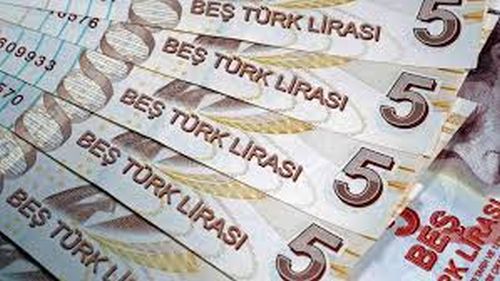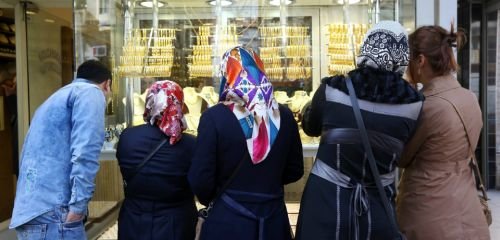Economy in Turkey - Is the crisis canceled?
Politically, Turkey has made little positive headlines in recent years. From the business now comes surprisingly good news. The feared crisis seems to be going on for the time being.
The Istiklal Caddesi in the heart of Istanbul is not only the most famous shopping mile in Turkey, it is also a reflection of the economic development of the emerging market. Numerous shops there have grown, including those from German groups such as Tchibo or Mediamarkt. Customers stayed out: Turkish, because they held their money together because of the unstable situation. Foreign because hardly Western tourists came. Warnings of an economic crisis were loud. However, surprisingly positive news comes from Turkey, at least for the business sector. Did the bottom go down?
Politically, Turkey has been driving through stormy times for at least two years, which have also brought the economy into heavy water. The three major rating agencies downgraded Turkey to Ramschniveau. In the quarter after the coup attempt of July 2016, the economy shrank for the first time since the crisis year 2009. The alarm bells may have shrunk with President Recep Tayyip Erdogan. The support which he continues to enjoy in large parts of the population is also based on the economic successes achieved by Turkey under his auspices.

In order to revive the economy, the government has expanded its expenditures and generously granted tax concessions. The volume of the credit guarantee fund was boosted from 20 billion to 250 billion lira (64 billion euro), thus bank loans to small and medium-sized enterprises were hedged.
Subsidies for holiday-makers who travel to holiday-makers' airports in Turkey have been expanded. The Government will subsidize each of these charter flights with at least 6000 dollars by the end of the year. For the first time since autumn 2015, the number of foreign visitors rose again in April, albeit from a low level.
The government has room for maneuver: the budget deficit was only 1.1 percent in 2016. The Maastricht criteria - unlike, for example, France or Spain - were accepted by the EU candidate for membership, which had been unsuccessful for decades. And the stimulus measures are showing first success: the government reported a growth of 5 percent for the first quarter of 2017. The World Bank has recently revamped its growth forecast by half a point to 3.5 per cent.
However, this is not enough to deal with the unemployment rate of 11.7 per cent. Particularly alarming is youth unemployment, which has now risen to 23 per cent. In addition to the current labor force of more than 31 million, more than half a million young Turks are pushing for the labor market every year. "We need foreign investments that create jobs," says the managing director of the Turkish-Turkish Chamber of Commerce in Istanbul, Jan Nöther.

Last year, however, international direct investment fell by 31 percent to 12.1 billion dollars (10.8 billion euros), and this decline accelerated in the first two months of the year. "Investments will also decline in the first half of 2017," says Nöther. Large German companies, which are already represented in Turkey, continued to invest. "However, new investments are cautious. Particularly small and medium-sized enterprises are waiting for the development. "
Despite the difficult political environment, German economists emphasize Turkey's location advantages: well-educated specialists, relatively low wages, high productivity. Sectors such as the automotive sector are particularly booming due to exports of trucks and buses, of which German companies such as Mercedes-Benz Türk profit. Last but not least, Turkey is a market with 80 million potential consumers, which is continuing to grow.
The government knows that it is dependent on international investors for sustainable growth, which it appropriates accordingly. A German economic expert in Istanbul, who wants to remain anonymous, says: "Turkey is one of the most investor-friendly countries at the moment." How democracy is developing is of secondary importance. "Investors want stability."
However, massive dismissals and commitments are not helpful for the image abroad. This also applies to the expropriations of alleged supporters of the Gülen movement, which Erdogan is responsible for the coup attempt. It is true that since Erdogan's victory at the Constitutional Conference, some peace has come to an end in Turkey. Whether this rest is actually stability or will prove deceptive.